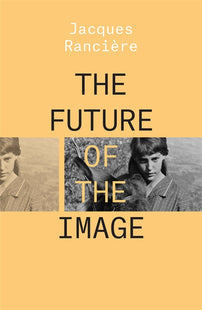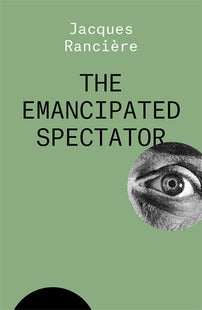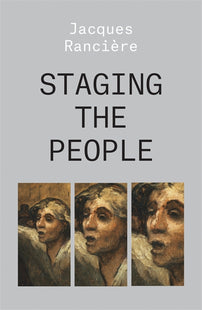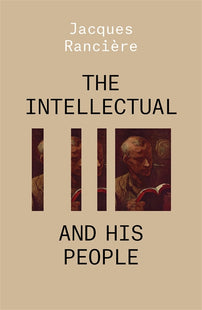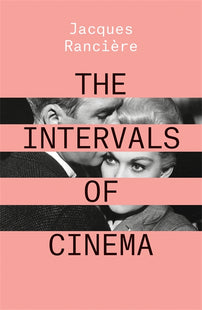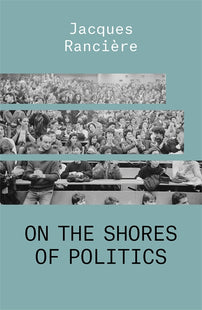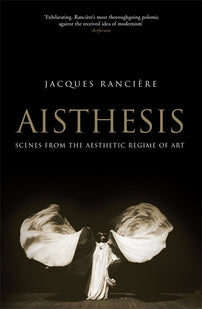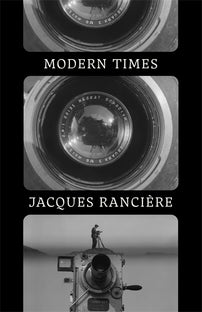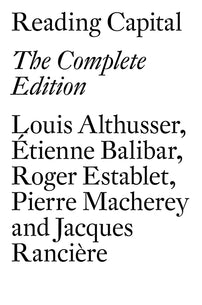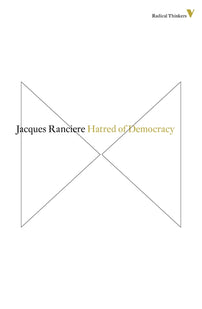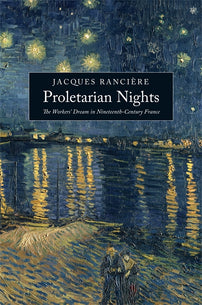Jacques Rancière Bookshelf
Complete your Rancière bookshelf with this reading list!

Jacques Rancière remains one of the greatest theorists of politics and aesthetics. Fill up your bookshelf with the newly reprinted Essential Rancière series and more below.
[book-strip index="1" style="buy"]In The Future of the Image, Jacques Rancière develops a fascinating new concept of the image in contemporary art, showing how art and politics have always been intrinsically intertwined. He argues that there is a stark political choice in art: it can either reinforce a radical democracy or create a new reactionary mysticism. For Rancière there is never a pure art: the aesthetic revolution must always embrace egalitarian ideals.
[book-strip index="2" style="buy"]In this follow-up to the acclaimed The Future of the Image, Rancière takes a radically different approach to this attempted emancipation. First asking exactly what we mean by political art or the politics of art, he goes on to look at what the tradition of critical art, and the desire to insert art into life, has achieved. Has the militant critique of the consumption of images and commodities become, ironically, a sad affirmation of its omnipotence?
[book-strip index="3" style="buy"]These essays from the 1970s mark the inception of the distinctive project that Jacques Rancière has pursued across forty years, with four interwoven themes: the study of working-class identity, of its philosophical interpretation, of “heretical” knowledge and of the relationship between work and leisure.
[book-strip index="4" style="buy"]A classic collection of essay by Jacques Rancière that focuses on the ways in which radical philosophers understand the people they profess to speak for. The Intellectual and His People engages in an incisive and original way with current political and cultural issues, including the “discovery” of totalitarianism by the “new philosophers,” the relationship of Sartre and Foucault to popular struggles, nostalgia for the ebbing world of the factory, the slippage of the artistic avant-garde into defending corporate privilege, and the ambiguous sociological critique of Pierre Bourdieu. As ever, Rancière challenges all patterns of thought in which one-time radicalism has become empty convention.
[book-strip index="5" style="buy"]The cinema, like language, can be said to exist as a system of differences. In his latest book the acclaimed philosopher Jacques Rancière relates cinema to literature and theatre. With literature, he argues, cinema takes its narrative conventions, while at the same time effacing its images and its philosophy; and it rejects theatre, while also fulfilling theatre’s dream. Built on these contradictions, the cinema is the real, material space in which one feels moved by the spectacle of shadows. Thus for Rancière, the cinema is the always disappointed dream of a language of images.
[book-strip index="6" style="buy"]It is frequently said that we are living through the end of politics, the end of social upheavals, the end of utopian folly. Consensual realism is the order of the day. But political realists, remarks Jacques Ranciere, are always several steps behind reality, and the only thing which may come to an end with their dominance is democracy. We could, he suggests, merely smile at the duplicity of the conclusion/suppression of politics which is simultaneously a suppression/conclusion of philosophy.
[book-strip index="7" style="buy"]Composed in a series of scenes, Aisthesis–Rancière’s definitive statement on the aesthetic–takes its reader from Dresden in 1764 to New York in 1941. Along the way, we view the Belvedere Torso with Winckelmann, accompany Hegel to the museum and Mallarmé to the Folies-Bergère, attend a lecture by Emerson, visit exhibitions in Paris and New York, factories in Berlin, and film sets in Moscow and Hollywood. Rancière uses these sites and events—some famous, others forgotten—to ask what becomes art and what comes of it. He shows how a regime of artistic perception and interpretation was constituted and transformed by erasing the specificities of the different arts, as well as the borders that separated them from ordinary experience. This incisive study provides a history of artistic modernity far removed from the conventional postures of modernism.
[book-strip index="8" style="buy"]Time is more than a line drawn from the past to the future. It is a form of life, marked by the ancient hierarchy between those who have time and those who do not. This hierarchy still governs a present which clings to the fable of historical necessity and its experts. In opposition to this, Jacques Rancière shows how the break with the hierarchical conception of time implies a completely different idea of the modern. He sees the fulfilment of this in two arts of movement, cinema and dance, which at the beginning of the twentieth century abolished the opposition between free and mechanical people, and exposed the rift between the revolution of artists and that of strategists.
[book-strip index="9" style="buy"]Originally published in 1965, Reading Capital is a landmark of French thought and radical theory, reconstructing Western Marxism from its foundations. Louis Althusser, the French Marxist philosopher, maintained that Marx’s project could only be revived if its scientific and revolutionary novelty was thoroughly divested of all traces of humanism, idealism, Hegelianism and historicism. In order to complete this critical rereading, Althusser and his students at the École normale supérieure ran a seminar on Capital, re-examining its arguments, strengths and weaknesses in detail, and it was out of those discussions that this book was born.
[book-strip index="10" style="buy"]In this vehement defence of democracy, Jacques Rancière explodes the complacency of Western politicians who pride themselves as the defenders of political freedom. As America and its allies use their military might in the misguided attempt to export a desiccated version democracy, and reactionary strands in mainstream political opinion abandon civil liberties, Rancière argues that true democracy—government by all—is held in profound contempt by the new ruling class. In a compelling and timely analysis, Hatred of Democracy rethinks the subversive power of the democratic ideal.
[book-strip index="11" style="buy"]Proletarian Nights, previously published in English as Nights of Labor and one of Rancière’s most important works, dramatically reinterprets the Revolution of 1830, contending that workers were not rebelling against specific hardships and conditions but against the unyielding predetermination of their lives. Through a study of worker-run newspapers, letters, journals, and worker-poetry, Rancière reveals the contradictory and conflicting stories that challenge the coherence of these statements celebrating labor.
